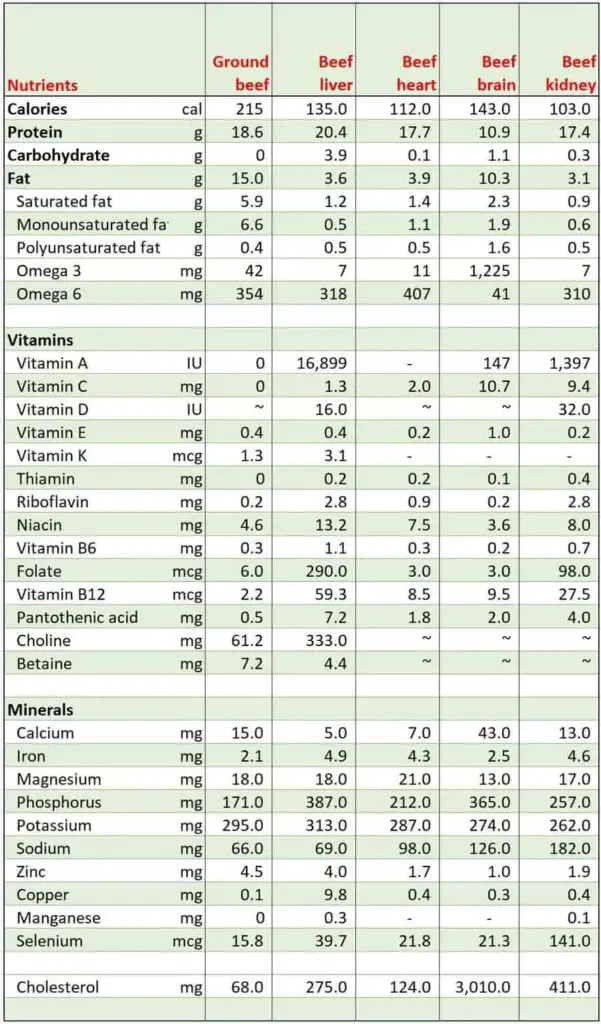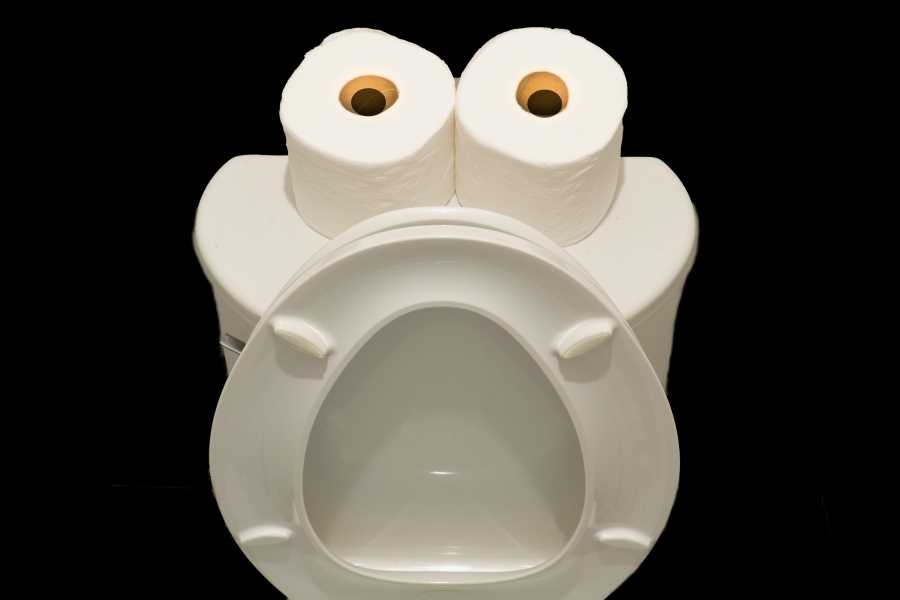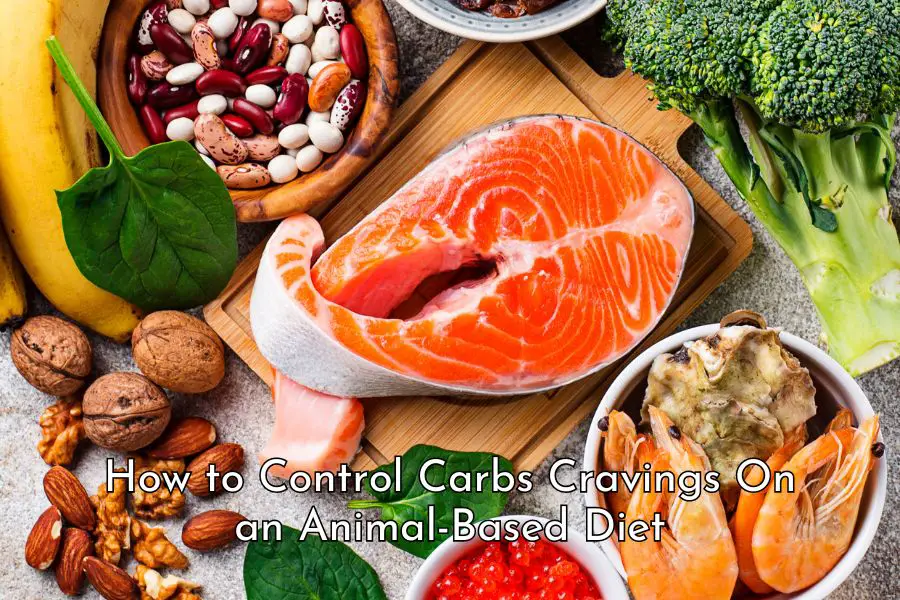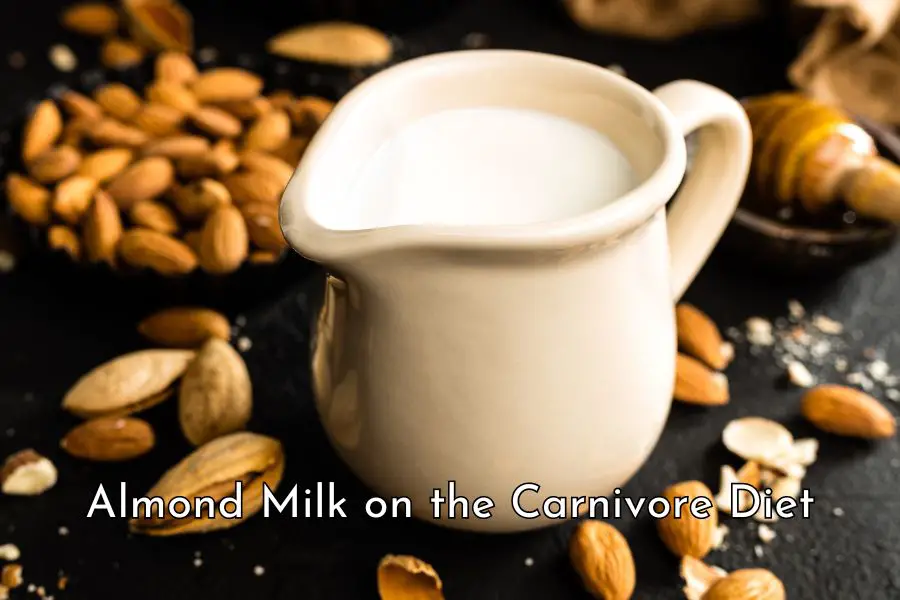Diarrhea is one of the short-term side effects of the carnivore diet which is a major concern for those who are considering trying out this diet for the first time.
This in-depth post will cover the potential causes of diarrhea on the carnivore diet, the average length of diarrhea during the adaptation phase, and many potential ways to help you deal with diarrhea and get through the initial period more smoothly.
What is diarrhea?
Diarrhea is a condition where you have three or more loose or watery stools a day.[1]
Diarrhea is commonly caused by infection (e.g. a stomach bug). Infectious diarrhea usually lasts less than two weeks.[2]
Diarrhea that lasts longer than 4 weeks tends to be non-infectious and is usually caused by some underlying health problems such as inflammatory bowel disease, Crohn’s disease, ulcerative colitis, and medication side effects.[3]
Potential causes of diarrhea on the carnivore diet
Potential causes of diarrhea when transitioning to the carnivore diet include increased bile acid excretion, underlying gut problems, high protein intake, changes in gut microbiota, food intolerance, and vitamin deficiency.
1. Increased bile acid excretion
Your liver produces bile acids to facilitate the digestion of fats.[4]
Because the process of producing bile acids is costly, around 95% of the bile acids are actually reabsorbed back in the small intestine.[5]
When you switch to the carnivore diet, your fat intake is likely to increase substantially unless you have been on a ketogenic diet previously.
This increase in fat intake will naturally result in an increase in bile acid production.
As it takes time for your intestines to adapt to the increase in bile acid secretion and reabsorb all the additional bile acid influx, the non-absorbed bile acids which go to the colon will cause diarrhea.
2. Underlying gut problems
The above is a temporary problem due to the sudden and substantial increase in fat intake.
However, some people may come to the carnivore diet with underlying gut problems and already suffer from diarrhea relating to bile acid production and reabsorption.
For example, gastrointestinal conditions such as post-cholecystectomy, celiac disease, chronic pancreatitis, and microscopic colitis can result in bile acid malabsorption. In addition, in some people with inflammatory conditions, their signaling pathways may not be activated properly (decreased circulating levels of FGF-19) resulting in bile acid overproduction.[6]
It is estimated that around 30% of chronic diarrhea cases are bile acid related.[7]
If you have these existing gut problems, diarrhea might become exacerbated when you first transition to the carnivore. This is because your compromised gut has not yet had the time to heal but is now forced to deal with an increase in bile acid secretion.
3. Eating too much lean meat
Eating too much lean meat without adequate fat or carbohydrates can lead to protein poisoning and one of the symptoms of this condition is diarrhea.
This is because your liver has a limited capacity to deaminate proteins and produce urea for the excretion of excess nitrogen. Dangers of excessive protein include hyperaminoacidemia, hyperammonemia, hyperinsulinemia nausea, diarrhea, and even death.[8]
Protein poisoning has been referred to in the literature as the “rabbit starvation syndrome” and was first documented by Vilhjalmur Stefansson, an Arctic explorer and anthropologist. Because rabbit meat is very lean, subsisting on rabbit meat for a prolonged period of time will result in severe nutritional distress and potentially death.[9]
If you are transferred suddenly from a diet normal in fat to one consisting wholly of rabbit, you eat bigger and bigger meals for the first few days until at the end of about a week, you are eating in pounds, three or four times as much as you were at the beginning of the week. By that time, you are showing both signs of starvation and of protein poisoning. You eat numerous meals; you feel hungry at the end of each; you are discomfort through distention of the stomach with much food and you begin to feel a vague restlessness. Diarrhoea will start in from a week to 10 days and will not be relieved unless you secure fat. Death will result after several weeks.
Vilhjalmur Steffansson (1944)
When Vilhjalmur Stefansson was put on a one-year of meat-only diet as an experiment in 1928 at Bellevue Hospital, they first fed him lean meat only. On the third day of this lean meat diet, he developed nausea and diarrhea. When fat meat was added to the diet, he fully recovered in 2 days but had a period of constipation lasting 10 days.
There is no precise estimate of the protein threshold for the rabbit starvation syndrome, but some sources suggest that the upper limit for protein intake is about 35% to 40% of the total calorie intake.[10, 11]
However, some people reported doing okay with 50% protein while some say they feel best on a protein to fat ratio of 20:80, i.e. 20% of their calories are from proteins and 80% are from fat.
In short, if your protein intake is higher than your personal tolerance level, it could be one of the causes of your diarrhea.
4. Changes in gut microbiome
When you switch from other mainstream diets to the carnivore diet, potentially, there will be a significant change to your gut microbiome.
If your previous diet is a carbohydrate-rich diet, your gut microbiome is likely to be dominated by bacteria and other microorganisms that thrive on fiber, carbs, and polyphenols.
On the carnivore diet, because there is a very little amount of carbohydrates in animal-based food, these microorganisms will start to die off and give way for the proliferation of microorganisms that thrive on animal proteins and fats.
According to Dr. Saladino, this substantial changes in the composition of the gut microbiota will cause discomfort in your digestive tract and one of the symptoms can be diarrhea.
5. Food intolerance
Some people may be reacting to food such as chicken, pork, eggs, and dairy products.
As I wrote in this post, conventionally-farmed chicken and pork are probably not the best food to eat on the carnivore diet due to the conditions in which they are raised and the diets they are fed.
Dairy is another potential problem with an estimated 68% of the global population suffering from lactose intolerance. A1 casein protein in milk is also controversially linked to some health problems. [12, 13, 14, 15, 16, 17]
Egg allergy is less common but can be a problem for some people due to the reaction to egg proteins. Symptoms can be mild (e.g. skin rash and runny nose) to severe (e.g. vomiting, lethargy, and diarrhea).[18]
6. Vitamin A and vitamin D deficiency
Vitamin A and vitamin D both play an important role in bile acid production and deficiency in these vitamins could be a cause of your gut problem and related diarrhea.[19, 20]
How long does diarrhea last during the adaptation phase
Understandably, the length of diarrhea during the adaptation phase varies greatly from person to person due to a number of factors such as:
- diet prior to the carnivore diet
- existing health problems
- nutritional status
- genetic.
Based on the data that I’ve collected, the shortest duration is about 2 to 3 days, the median duration is around 2 weeks. However, some people reported experiencing up to 2 years of sporadic diarrhea before their digestive system returned to normal.
You should definitely check with your doctor before trying the carnivore diet, especially if you have underlying health conditions and are currently taking medications.
In addition, if you experience diarrhea for more than 2 weeks, please check with your doctor to find out if there is anything more serious than just your body adjusting to the new diet.
How to deal with diarrhea on the carnivore diet
You can deal with diarrhea on the carnivore diet in a number of ways including trusting the process and letting your body adapt gradually, eliminating potential troublesome food, adding organ meat to your diet, adjusting the fat to protein ratio, drinking bone broth, getting enough sunlight, fasting, taking supplements, or using medications.
1. Trust the process and let your body adapt
In my view, this is the best approach. Your body has an amazing ability to heal itself given the right condition.
When you switch to the carnivore diet, there are a lot of substantial changes happening in your digestive system as mentioned above. But if you feed your body the right diet: nutritious animal-based food that your body is designed to eat, it will be able to heal itself.
If you think you’ve got the diet part right with an appropriate fat to protein ratio, trust the process, be patient, and let your body adapt to the new diet slowly.
As discussed above, diarrhea is an expected part of the switch to the carnivore diet. It’s not a sign that this diet is not right for you. In fact, it may be a sign that you need this diet the most.
If your body is not able to digest the increased fat intake properly even after weeks on the carnivore diet, it’s probably that something is wrong with your digestive system (e.g. leaky gut, irritable bowel syndrome, or small intestinal bacterial overgrowth).
If this is the case, the carnivore diet is a great diet to heal your gut because it eliminates many root causes of this condition including plant toxins, added sugar, industrial seed oil, ultra-processed food, and alcohol. In addition, it feeds your body the necessary nutrients to help heal your damaged gut.
However, I understand that this approach may not be suitable for everyone.
If you work from home or if you start the carnivore diet during the holidays, it’s okay to stay the course.
But if you have an office job or a job where constant diarrhea will become a significant inconvenience, it’s not a sign of weakness to try supplements or medications to help you go through this period easier.
2. Eliminate potential troublesome food
As mentioned above, pork, poultry, eggs, and dairy products could be problematic for some people.
If you experience prolonged diarrhea and don’t think you have any gut issues, try to eliminate the above food and just stick to ruminant meat and ruminant organ, preferably grass-fed if you can afford them.
3. Add organ meat to your diet
Because nutrition deficiency could be one of the causes of your gut problems and its ability to digest fat, adding organ meat to your diet is an easy way to address this issue.
As can be seen in the table below, organ meat is rich in many essential nutrients.
If you happen to be low in vitamin A, adding a couple of small slices of beef liver a few times a week will certainly fix this problem.

4. Adjust fat to protein ratio
As mentioned above, eating too much lean meat can cause diarrhea.
If you experience ongoing diarrhea and don’t feel very good, check your fat to protein ratio. And if you find that you are eating too much lean meat, increase fat intake gradually to see if it helps. Too much fat, as shown above, causes increased bile acid production and can cause diarrhea too.
Even if you start the carnivore diet to lose weight, please don’t fear or worry about fat at this stage. Add fat to your diet according to your personal preference. In this initial phase, please only focus on becoming adapted to this new diet, nurture your body and feed it what it craves.
After you’ve gotten used to the new diet and fixed underlying health problems, you can begin looking at tweaking the diet to achieve the body composition you want.
5. Drink bone broth
Bone broth is a great source of collagen, gelatin, glycine, proline, glutamine, and has a small quantity of a range of minerals including sodium and potassium.
Drinking bone broth keeps you hydrated while replenishing some of the electrolytes lost due to diarrhea.
Here is an easy bone broth recipe if you are new to bone broth.
6. Get enough sunlight
Vitamin D plays an important role in bile acid synthesis.
In addition, vitamin D promotes calcium absorption and is needed for bone growth and remodeling.
Vitamin D’s other roles in the body include reduction of inflammation as well as modulation of such processes as cell growth, neuromuscular and immune function, and glucose metabolism.[21]
The best way to get vitamin D is sun exposure and eating food rich in vitamin D such as oily fish like salmon, sardines, mackerel, and herring, liver, egg yolks, and red meat.
Try to get at least an hour of good sun exposure a day if you haven’t done that already.
Our ancestors were likely to spend most of their time outdoors and probably had a much higher level of vitamin D compared to most of us today.
If you need to supplement vitamin D for whatever reasons (e.g. lack of natural sunlight or food allergen), I think cod liver oil is a great natural source.
7. Try fasting
As mentioned above, your body has an amazing ability to heal if it is given the right condition to do so.
Giving your body a rest from digesting food which is a heavy workload in itself can help facilitate healing.
However, not eating also means not supplying your body the nutrients it may desperately need for healing. So, whether fasting works really depends on your nutritional status and how much energy reserve you’ve got.
This is also the case when you need to consult with your doctor to see if fasting is a good idea.
8. Take supplements
Below are some supplements that you can take to help deal with diarrhea:[22, 23]
- Electrolytes. Diarrhea causes dehydration and electrolyte loss (sodium, potassium, magnesium, chloride) therefore drinking electrolytes can keep you hydrated, replenish the lost electrolytes and make you feel better.
- Sea salt. Diarrhea means you lose a lot of water and sodium that goes with it. Add generous sea salt to your steaks at this stage and don’t worry about the risk of high salt intake. Later on, you may experience and find out how you feel with and without salt, but at this stage, add salt to your liking (read more about whether you should use salt on the carnivore diet here)
- Calcium powder. According to Dr. Paul Saladino, calcium supplement can help bind the excess bile acids and prevent them from irritating the colon and causing diarrhea. The best calcium sources are bone meal, crushed egg shells or a calcium supplement that is free from binders like hydroxymethylcellulosee, titanium dioxide, or sulfur dioxide. You can easily make bone meal following this recipe or eggshell powder following this recipe
- Ox bile and lipase supplements. These can help with fat digestion
- Herbal medicines. According to Elliot Overton, a nutritional therapist and functional medicine practitioner, herbal medicines such as milk thistle, berberine and artemisinin can help with diarrhea. Milk thistle which is often used in traditional medicine as a liver support or detox can help normalize. Berberine can modulate gut bacteria as well as help normalize bile acid production. Please talk to your doctor before trying out these herbal supplements, especially if you are taking prescription medications
- Vitamin C. Also according to Elliot Overton, vitamin C supplement of 2g to 4g a day can work well for some people.
9. Take medications
There are medications that you can take to treat diarrhea including:
- Bile acid sequestrants which bind bile acids and decrease their potential to cause diarrhea (e.g. cholestyramine, colestipol and colesevelam)
- Over the counter medications such as Lomotil and Imodium.
Conclusion
In summary, diarrhea is an expected and necessary part of the adaptation process. However, as shown above, there are a number of things that that you can do to manage this condition.
Be patient as your body learns to adapt to this new diet and trust the process, it will be over one day.
If you find this post helpful, please consider sharing this post and my site with your family, friends, and followers. That would be much appreciated. Please also check out my library of articles on the carnivore diet here which is updated regularly.
Disclaimer: The information in this post is for reference purposes only and not intended to constitute or replace professional medical advice. Please consult a qualified medical professional before making any changes to your diet or lifestyle.
Photo credit: Earl Wilcox on Unsplash





